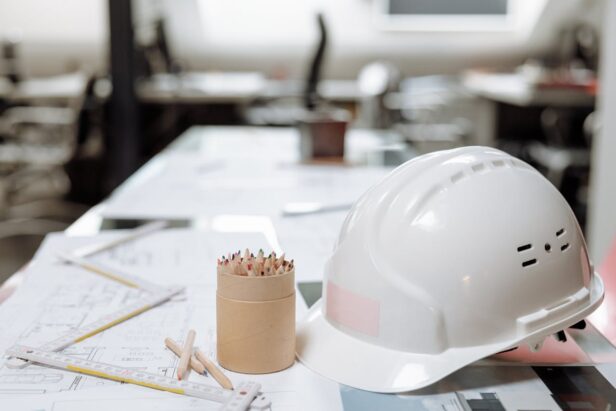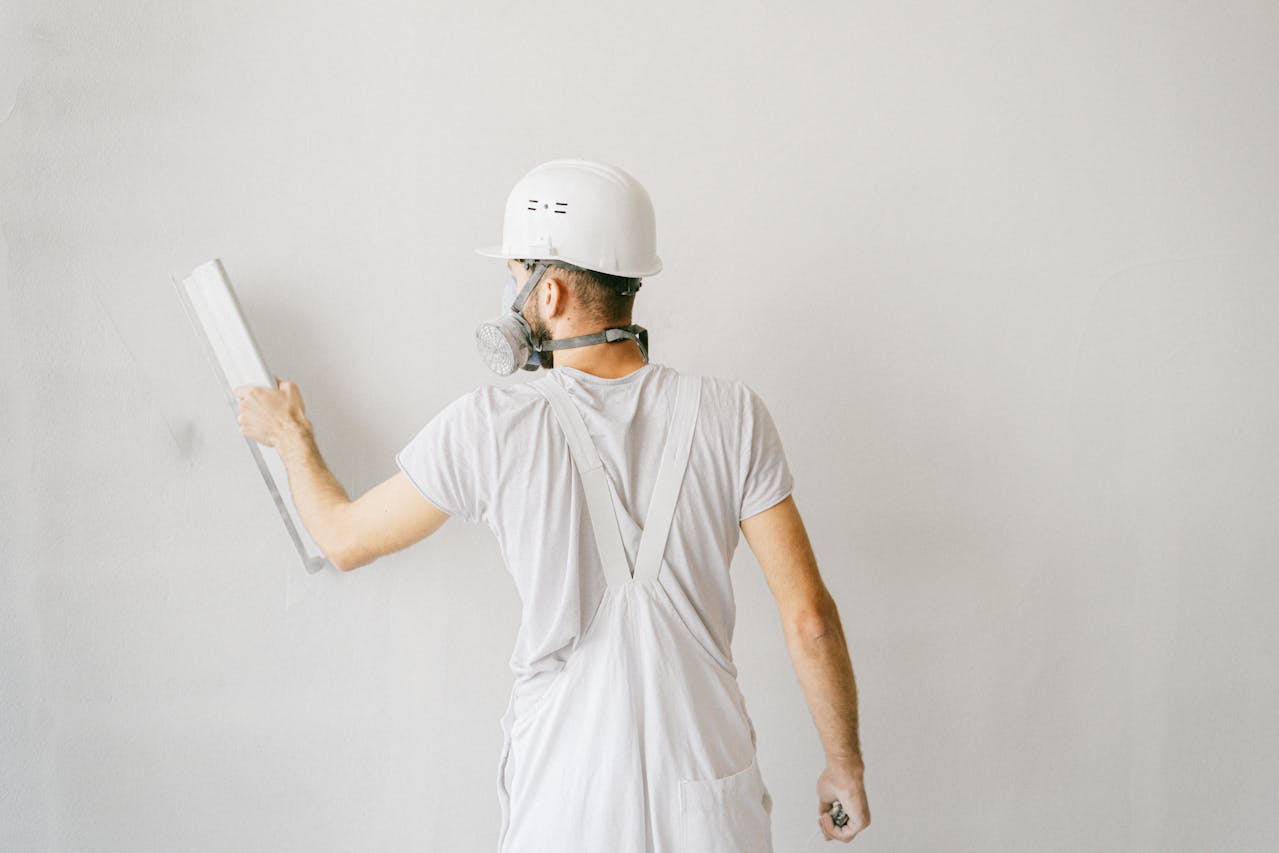The DFW construction market presents thousands of general contractor options according to construction directories. This abundance creates both opportunity and challenge for developers and property owners seeking the right construction partner.
Finding a reliable general contractor in Dallas requires focusing on proven services, documented safety and quality controls, and clear processes that span from pre-construction through project close-out. The right contractor brings peace of mind, efficient project management, and quality workmanship to your construction project delivery.
What Services Signal A Reliable Dallas General Contractor?
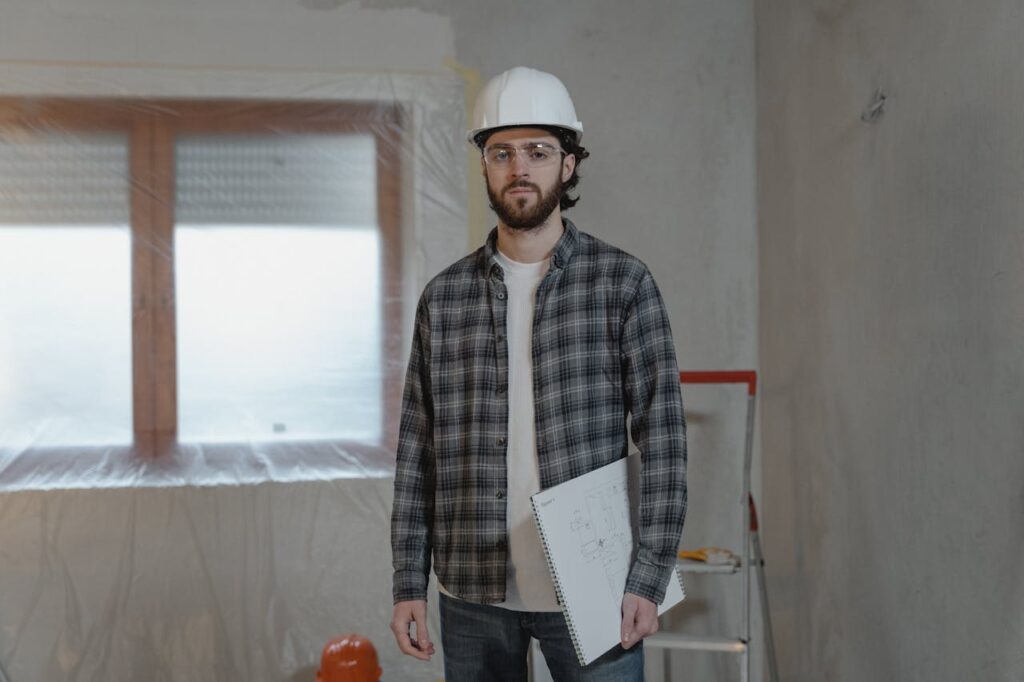
The services a general contractor offers reveal their capability to handle complex construction projects from start to finish. We evaluate contractors based on their comprehensive approach to construction project delivery, which includes critical phases like pre-construction planning, construction management, and post-construction close-out.
Pre-Construction Planning And Feasibility
A reliable Dallas general contractor provides thorough pre-construction services that establish project viability before breaking ground. We coordinate budgeting and estimating processes that reflect current Dallas market conditions and material costs. These services include feasibility studies that assess site conditions, zoning compliance, and construction constraints specific to Dallas regulations.
Value engineering becomes essential during this phase, where we identify cost-effective alternatives without compromising quality or safety standards. Design and blueprint development requires coordination with architects and engineers to ensure constructability and code compliance. This comprehensive approach prevents costly changes during construction and establishes realistic project timelines.
Permitting And Zoning Coordination
Dallas permitting requires detailed knowledge of city requirements and building codes. We manage permit applications through the City of Dallas Sustainable Development and Construction Department, coordinating with plan reviewers and inspectors throughout the approval process. Zoning support ensures projects comply with setback requirements, height restrictions, and land use regulations.
Site logistics planning coordinates material deliveries, equipment placement, and traffic management to minimize disruption to surrounding properties. We schedule inspections and maintain coordination with utility companies for service connections and modifications. This systematic approach prevents delays and ensures smooth construction progress.
Project Delivery Methods
Dallas contractors should offer multiple delivery methods to match project requirements and owner preferences. General contracting provides traditional project management with competitive bidding for subcontractors and suppliers. Construction management involves our team overseeing the project while the owner holds direct contracts with major trades.
Design-build delivery integrates design and construction under a single contract, streamlining communication and reducing project timelines. We coordinate directly with architects and engineers during design development, ensuring constructability reviews and value engineering opportunities. Each delivery method requires different risk allocation and project management approaches.
Technology Integration And Collaboration
Modern construction projects benefit from Building Information Modeling (BIM) and virtual design collaboration tools. We use BIM to coordinate mechanical, electrical, and plumbing systems before installation, preventing field conflicts and rework. Virtual design collaboration allows real-time coordination with design teams and specialty contractors regardless of location.
These technologies improve cost control by identifying potential issues during the design phase rather than during construction. We maintain digital project records and use cloud-based project management systems for transparent communication with all stakeholders. Technology integration enhances quality assurance and reduces construction timelines.
Sustainability And Environmental Compliance
LEED certification and green building practices require specialized knowledge of sustainable construction methods and materials. We coordinate LEED documentation throughout construction, ensuring compliance with energy efficiency, water conservation, and indoor air quality standards. This includes managing waste diversion programs and sustainable material procurement.
Sustainability guidance extends beyond LEED to include energy-efficient building systems, renewable energy integration, and environmental impact mitigation. We work with specialty consultants and green building professionals to achieve sustainability goals while maintaining cost control and schedule compliance.
Quality Assurance And Safety Programs
Comprehensive quality assurance programs ensure construction meets design specifications and industry standards. We implement quality control checkpoints throughout construction, documenting inspections and testing results for owner records. Site safety programs protect workers and visitors while maintaining compliance with OSHA regulations.
Transparent coordination includes regular progress reporting, schedule updates, and budget tracking accessible to all project stakeholders. We conduct regular safety meetings and maintain detailed safety documentation. Quality assurance extends to subcontractor oversight and material testing verification.
Post-Construction Services And Warranty Support
Post-construction close-out involves comprehensive punch list completion and final inspections with city authorities. We provide facility education to building operators and occupants, ensuring proper system operation and maintenance procedures. Warranty education covers all building systems and components with clear documentation of coverage periods and exclusions.
Assigned warranty contacts provide direct communication channels for warranty issues and follow-up services. We schedule regular warranty inspections and maintain relationships with subcontractors and suppliers for prompt warranty response. Final billing and lien release coordination ensures clear project closeout and title transfer.
How Do You Verify Licensing, Permits, Safety, And Quality?
Verifying a general contractor’s credentials requires examining six critical areas that directly impact your project’s success. We conduct thorough checks on each aspect to ensure contractors meet Dallas building standards and deliver quality construction.
General Contractor License Verification
Dallas requires general contractors to register with the Building Inspection Division before they can obtain permits. We confirm contractors have completed this registration process and maintain current standing with the city. The registration demonstrates they understand local building codes and have oversight systems for managing subcontractors.
General contractor registration in Dallas includes proof of liability insurance, state sales tax permits, and a certificate of occupancy for their business location within city limits. These requirements show they operate legitimate businesses with proper financial backing and physical presence in the area.
Dallas Permit Resources And Compliance
We use the Official Website of the City of Dallas to verify permit histories and check zoning compliance for potential contractors. The city’s online resources show whether contractors have successfully managed the permitting process for similar projects and maintained good standing with building officials.
Permit verification reveals patterns in how contractors handle regulatory requirements. We examine their track record with plan submissions, inspection scheduling, and approval timelines to gauge their familiarity with Dallas construction processes.
Quality Control And Site Safety Documentation
Documented quality control procedures separate experienced contractors from those operating without proper systems. We request detailed explanations of their quality assurance protocols, inspection coordination practices, and site safety programs. These procedures should include specific checkpoints at each construction phase and clear responsibility assignments.
Site safety practices must comply with Dallas building construction site management requirements, which include rest break provisions and proper signage. Contractors should demonstrate how they coordinate with city inspectors and maintain safety standards throughout construction phases, from foundation work through final occupancy inspections.
Cost Control And Scheduling Methods
Reliable contractors provide transparent methods for managing project costs and maintaining construction schedules. We evaluate their approaches to cost control, including change order procedures, budget tracking systems, and value engineering processes that identify cost-saving opportunities without compromising quality.
Scheduling capabilities should include coordination with Dallas inspection requirements and realistic timelines for permit approvals. Contractors must show they understand the city’s inspection processes, which can significantly impact project schedules if not properly managed.
Technology Integration And Sustainability Management
Modern construction projects benefit from advanced coordination tools and sustainable practices. We assess contractors’ capabilities with Building Information Modeling (BIM) and virtual design collaboration systems that improve project coordination and reduce construction conflicts.
For projects requiring LEED certification or other sustainability standards, contractors should demonstrate experience with green building practices and the documentation required for certification processes. This expertise becomes crucial for commercial projects where sustainability ratings affect long-term value.
Close-Out Process And Warranty Support
The project close-out process reveals how contractors handle final details and ongoing client relationships. We verify their punch list procedures, certificate of occupancy coordination, and warranty education processes. Contractors should assign specific contacts for warranty issues and provide clear follow-up schedules.
Warranty processes should include documentation of all systems, instruction on maintenance requirements, and responsive service for addressing post-construction issues. This support structure demonstrates the contractor’s commitment to long-term project success beyond construction completion.
Where Can You Source And Compare Dallas Contractors?
The Dallas-Fort Worth construction market includes thousands of general contractors across multiple platforms. We use several key resources to identify qualified candidates and compare their capabilities systematically.
Local Review Directories With Contractor Ratings
Local directories provide immediate access to contractor profiles with verified ratings and service highlights. HomeAdvisor lists 537 screened contractors in Dallas with over 24,000 ratings and reviews, maintaining an average rating of 4.61 out of 5.00. These platforms display response times, project completion rates, and customer feedback on communication and scheduling performance.
Review platforms reveal patterns in contractor behavior that we analyze before engagement. Look for consistent mention of on-time delivery, budget adherence, and clear communication throughout project phases. Contractors with multiple positive reviews across residential, commercial, or infrastructure sectors demonstrate sustained performance across different project types.
Construction Networks For Comprehensive Searches
The Procore Construction Network reports 3,761 general contractors in Dallas, allowing searches by trade specialization, service areas, and project sectors. This network enables filtering by specific capabilities like design-build delivery, construction management, or specialty trades coordination. Each contractor profile includes contact information, service areas, and business classifications.
Construction networks provide more detailed trade information than general review sites. We can search contractors by specific capabilities like structural steel, electrical systems, or HVAC coordination. This targeted approach helps identify contractors with relevant experience for complex commercial or industrial projects requiring specialized trade coordination.
Category Filtering For Targeted Results
Effective contractor sourcing requires filtering by project sectors and service specializations. Categories include residential construction, commercial office buildings, healthcare facilities, educational institutions, and infrastructure projects. Each sector demands different expertise, licensing requirements, and coordination capabilities.
Filter contractors by their demonstrated experience in your specific project type. Commercial contractors understand complex MEP systems and multi-story construction challenges. Healthcare specialists navigate infection control requirements and occupied facility coordination. Infrastructure contractors manage heavy civil work, utilities, and transportation projects requiring specialized equipment and regulatory compliance.
Review Analysis For Performance Indicators
We examine contractor reviews for specific performance indicators beyond overall ratings. Communication quality appears in reviews mentioning regular updates, responsive problem-solving, and clear explanation of construction processes. Scheduling performance shows through mentions of milestone adherence, weather contingency planning, and coordination with other trades.
Budget performance indicators include mentions of accurate initial estimates, transparent change order processes, and final costs meeting contracted amounts. Reviews highlighting value engineering suggestions, cost-saving recommendations, and efficient material procurement indicate contractors focused on project economics and client value delivery.
What Questions Should You Ask Before You Hire?
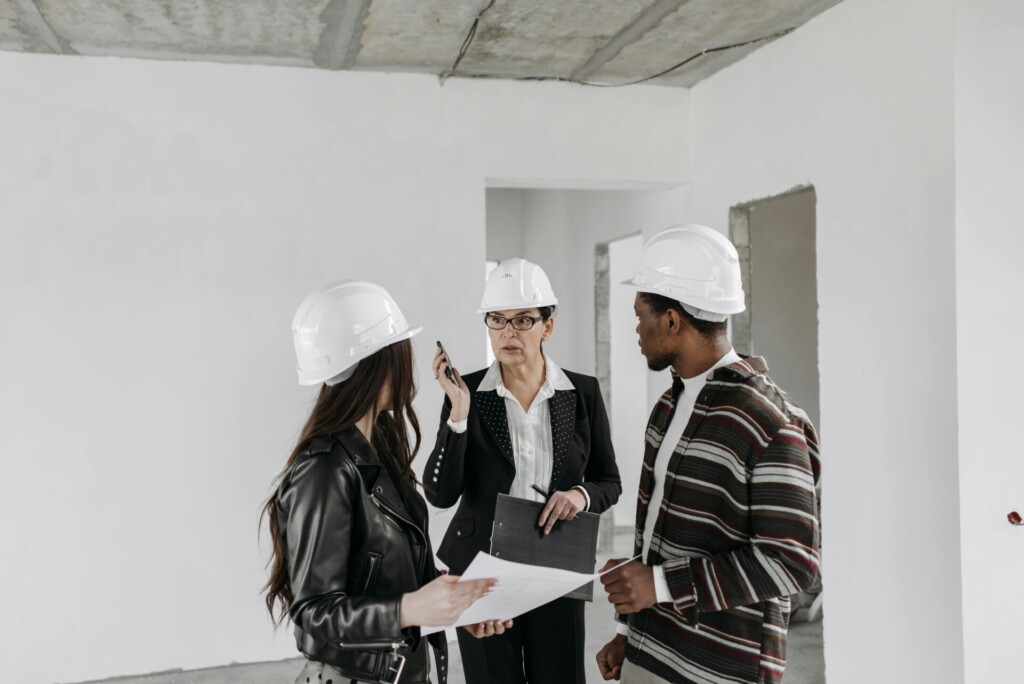
These contractor interview questions help you evaluate each candidate’s approach to project execution and long-term accountability. Focus on processes that demonstrate competence and commitment rather than vague promises.
Pre-Construction Planning And Value Engineering
Ask how the contractor handles budgeting, estimating, and feasibility studies during the planning phase. Strong candidates will describe their systematic approach to cost analysis and timeline development. We establish detailed budgets based on current material costs, labor rates, and local market conditions.
Request specifics about their value engineering approach. This process identifies cost-saving opportunities without compromising quality or functionality. We analyze design alternatives, material substitutions, and construction methods that can reduce project costs while maintaining performance standards.
Understand their feasibility assessment methods. Professional contractors evaluate site conditions, zoning restrictions, and construction challenges before providing final estimates. This upfront analysis prevents costly surprises during construction.
Dallas Permitting And Compliance Management
Confirm their experience with Dallas permitting and zoning support processes. Local expertise prevents delays that derail project schedules. We maintain relationships with city officials and understand current permitting requirements across Dallas.
Ask about their permit coordination timeline and inspection coordination procedures. Experienced contractors schedule inspections proactively and address any compliance issues quickly. This knowledge of building codes and local regulations keeps projects moving forward efficiently.
Project Delivery Methods And Approach
Discuss which delivery methods best fit your project requirements. General contracting works well for defined scopes, while construction management offers more owner control during design development. Design-build integrates design and construction under single-source responsibility.
Request their recommendation based on project complexity, timeline, and budget parameters. We evaluate each project’s unique requirements to determine the most effective delivery approach. This assessment considers your involvement preference, risk tolerance, and schedule constraints.
Quality Assurance And Site Safety Practices
Review their QA/QC procedures in detail. Quality control requires systematic inspection checkpoints throughout construction phases. We implement quality assurance protocols that document compliance with specifications and building codes at each milestone.
Examine their site safety practices and safety record. Professional contractors maintain comprehensive safety programs with regular training, daily safety briefings, and documented safety protocols. Ask for their Experience Modification Rate, which reflects their workers’ compensation claims history.
Technology Integration And Design Collaboration
Inquire about BIM capabilities and virtual design collaboration tools. Building Information Modeling enhances coordination between architectural, structural, and MEP systems. We use BIM to identify potential conflicts before construction begins, reducing costly field changes.
Ask about their design collaboration processes with architects and engineers. Effective coordination prevents miscommunication and ensures design intent translates accurately to field construction. This collaboration continues throughout the project lifecycle.
Sustainability And LEED Management
Determine their experience with sustainable construction practices and LEED certification processes. Green building requirements involve specific materials, construction methods, and documentation procedures. We coordinate LEED submissions and maintain required documentation throughout construction.
Ask about their approach to sustainable material sourcing and waste management. These practices support environmental goals while often providing cost benefits through efficient resource utilization.
Cost Control And Schedule Management
Request details about their cost control methods and schedule maintenance procedures. Professional contractors track expenses against budgets weekly and provide regular progress reports. We implement change order processes that maintain budget control while addressing necessary project adjustments.
Ask what reporting you will receive throughout the project. Regular updates on schedule progress, budget status, and upcoming milestones keep you informed and enable proactive decision-making. This transparency builds trust and prevents surprises.
Warranty Process And Post-Construction Follow-Up
Review their punch list procedures and warranty process thoroughly. Professional contractors maintain systematic closeout processes that address all completion items before final payment. We provide comprehensive punch list management with clear timelines for resolution.
Confirm who serves as your assigned warranty contact after project completion. This dedicated contact ensures responsive service for any warranty issues that arise. Ask about their warranty response timeframes and resolution procedures to understand their long-term commitment to your project.
Conclusion And Next Steps
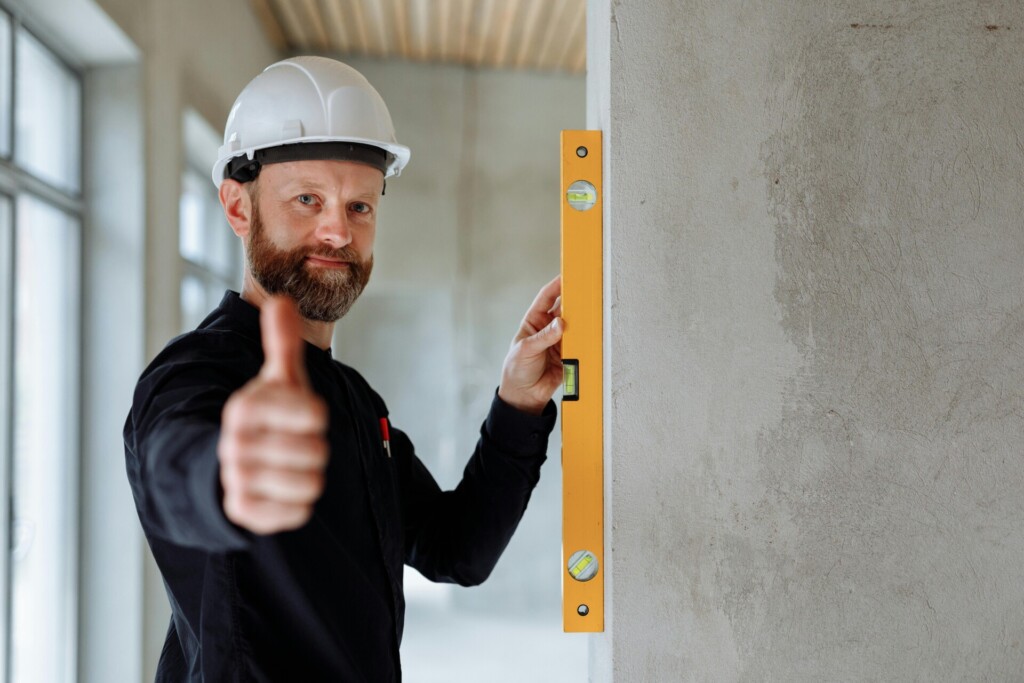
Dallas’s construction market offers numerous qualified general contractors, with thousands of options available through various directories and networks. The key to finding a reliable partner lies in methodical evaluation rather than rushing into agreements based solely on price or availability.
Start your selection process by confirming license and permit readiness through the Dallas Building Inspection Division. This initial verification establishes that potential contractors understand local requirements and maintain the credentials necessary for legal operation. Next, evaluate the full spectrum of services from pre-construction planning through post-construction close-out. We look for contractors who demonstrate comprehensive capabilities in budgeting, value engineering, quality assurance, and warranty education rather than those who offer fragmented services.
Use local directories and construction networks to compare your options systematically. Filter results by project sectors, service areas, and specific trades to create a manageable list of candidates. Review ratings, response times, and performance notes from previous clients to identify contractors with consistent communication and project scheduling abilities. Build your contractor shortlist by asking targeted questions about safety programs, quality control procedures, BIM capabilities, and warranty processes. Schedule face-to-face interviews to align project scope, budget parameters, and delivery schedules before signing any agreements.
Ready to start your Dallas construction project with a reliable general contractor? Contact EB3 to discuss your project requirements and timeline.

